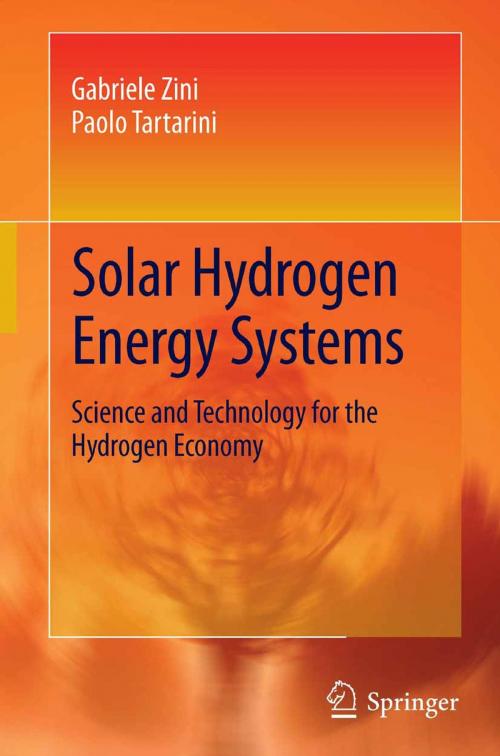Solar Hydrogen Energy Systems
Science and Technology for the Hydrogen Economy
Nonfiction, Science & Nature, Science, Physics, Energy, Technology, Engineering| Author: | Gabriele Zini, Paolo Tartarini | ISBN: | 9788847019980 |
| Publisher: | Springer Milan | Publication: | March 15, 2012 |
| Imprint: | Springer | Language: | English |
| Author: | Gabriele Zini, Paolo Tartarini |
| ISBN: | 9788847019980 |
| Publisher: | Springer Milan |
| Publication: | March 15, 2012 |
| Imprint: | Springer |
| Language: | English |
It is just a matter of time when fossil fuels will become unavailable or uneconomical to retrieve. On top of that, their environmental impact is already too severe. Renewable energy sources can be considered as the most important substitute to fossil energy, since they are inexhaustible and have a very low, if none, impact on the environment. Still, their unevenness and unpredictability are drawbacks that must be dealt with in order to guarantee a reliable and steady energy supply to the final user. Hydrogen can be the answer to these problems. This book presents the readers with the modeling, functioning and implementation of solar hydrogen energy systems, which efficiently combine different technologies to convert, store and use renewable energy. Sources like solar photovoltaic or wind, technologies like electrolysis, fuel cells, traditional and advanced hydrogen storage are discussed and evaluated together with system management and output performance. Examples are also given to show how these systems are capable of providing energy independence from fossil fuels in real life settings.
It is just a matter of time when fossil fuels will become unavailable or uneconomical to retrieve. On top of that, their environmental impact is already too severe. Renewable energy sources can be considered as the most important substitute to fossil energy, since they are inexhaustible and have a very low, if none, impact on the environment. Still, their unevenness and unpredictability are drawbacks that must be dealt with in order to guarantee a reliable and steady energy supply to the final user. Hydrogen can be the answer to these problems. This book presents the readers with the modeling, functioning and implementation of solar hydrogen energy systems, which efficiently combine different technologies to convert, store and use renewable energy. Sources like solar photovoltaic or wind, technologies like electrolysis, fuel cells, traditional and advanced hydrogen storage are discussed and evaluated together with system management and output performance. Examples are also given to show how these systems are capable of providing energy independence from fossil fuels in real life settings.















